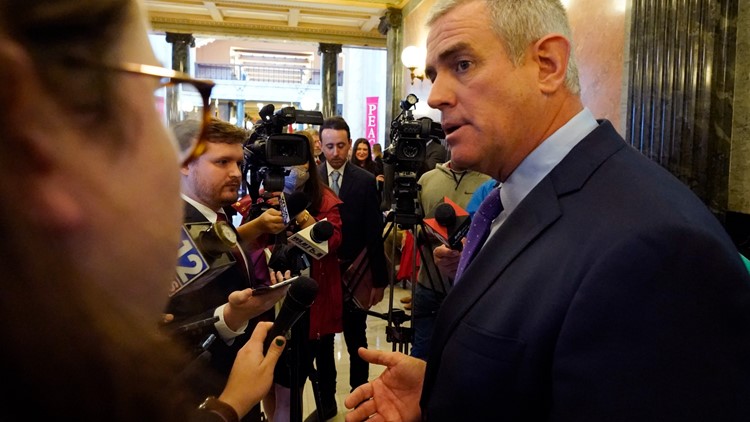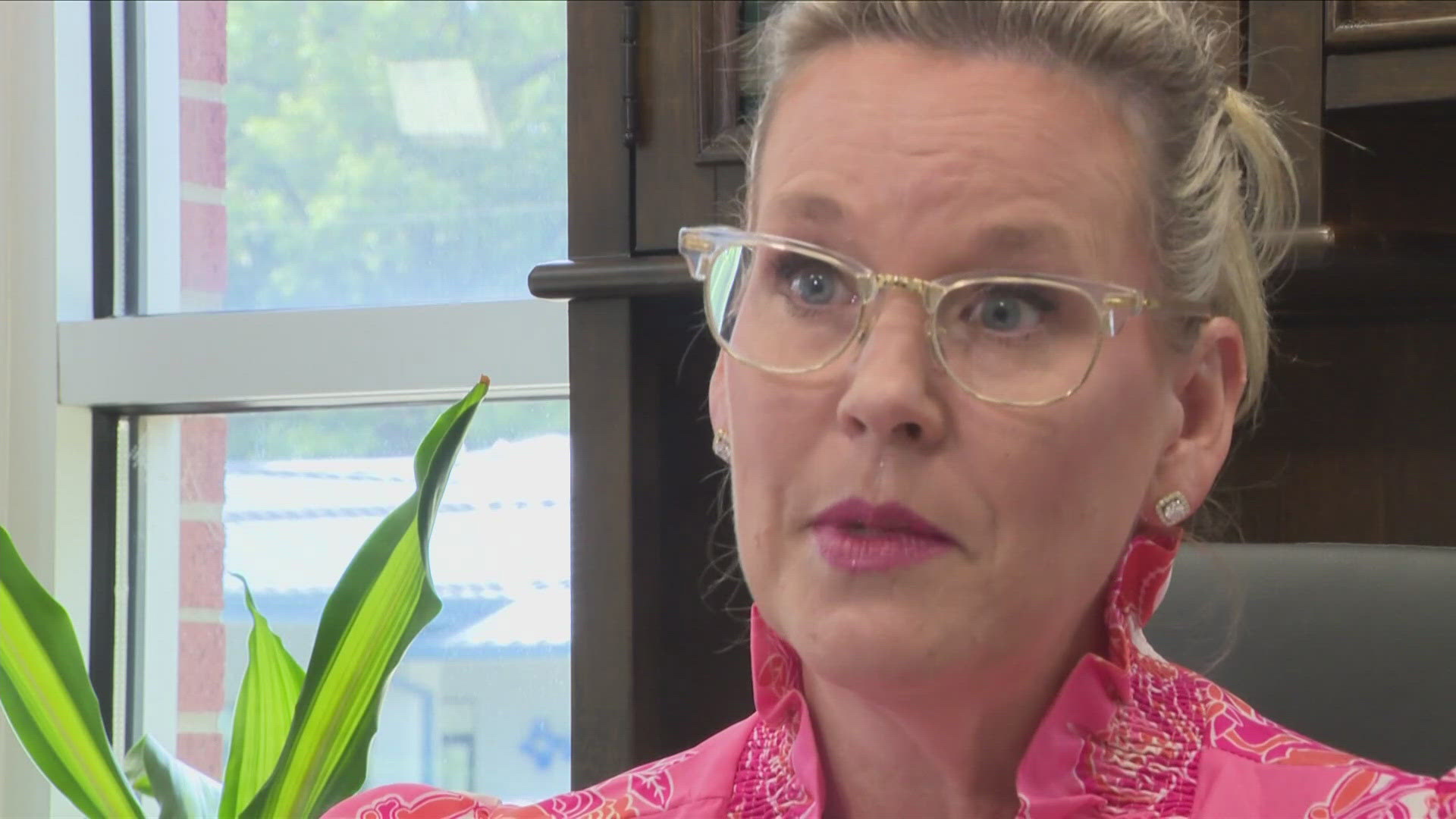JACKSON, Miss — Mississippi House Speaker Philip Gunn slightly modified his stance on tax reduction Tuesday as legislators opened their three-month session.
Instead of saying firmly that he will push to eliminate the state income tax, as he has done in the past, Gunn told reporters that he's open to discussions about many proposals to put money back into people's pockets.
During the 2022 session, legislators passed and Republican Gov. Tate Reeves signed the state’s largest tax cut ever. Starting this year, the 4% income tax bracket is eliminated. Over the next three years, the 5% bracket will be reduced to 4%.
“Last year’s plan was a four-year phase-in,” Gunn said Tuesday. "Given the revenues that we’ve got coming in, we can probably squeeze that down to one year or maybe two — and get there quicker.”
Gunn also said he would also be willing to consider reducing the top income tax bracket to 3.75% or 3.5%, if total elimination of the tax is not possible. Gunn is not seeking reelection this year, so this is his final regular session as speaker of the 122-member House.
Legislative leaders were told in December that Mississippi has about a $1 billion surplus. But the state also has one of the highest poverty rates in the nation, and several rural hospitals are struggling with financial problems.
Republican Lt. Gov. Delbert Hosemann, who presides over the 52-member Senate and is seeking reelection, has said he's not in favor of eliminating the income tax because of uncertainty about where the economy is headed.
Hosemann said he's open to an income tax rebate, which would not be a long-term change, or to a reduction in the state's 7% grocery tax.
“We have positioned Mississippi to get ready for inflation and a recession," Hosemann said Tuesday. "If that doesn’t come, that would be wonderful. But we will know that after 2026. We don’t know it today. And there are ... many more demands on our dollars.”
Hosemann and Gunn said legislators could discuss some sort of additional compensation for state employees during this election year — either pay raises or more money to support the public employees retirement system.
Neither made any commitment to putting more money into the struggling water system in the capital city of Jackson, where 25% of the 150,000 residents live in poverty.
“I do not think the state of Mississippi is inclined to just hand money over to the city,” Gunn said. “There will have to be discussions about if we put money there, who will supervise that, how will it be spent, what will it be spent on.”
Most of the city lost running water in late August and early September after flooding of the Pearl River exacerbated problems in the main water treatment plant. Tens of thousands of people again lost water service after a cold snap in late December, and some areas were still without service this week.
The federal government is allocating $600 million to the Jackson water system, and the U.S. Department of Justice appointed an experienced water system manager from Virginia to oversee improvements in Jackson. In early November, state officials announced Jackson would receive $35.6 million for water system improvements — federal money that came through the American Rescue Plan Act. The city was required to make a dollar-for-dollar match from its share of the rescue plan funding, bringing the total to more than $71 million.
“It’s obvious to me that we have some preliminary work in Jackson that has to be done before we can even allocate any more money,” Hosemann said.



